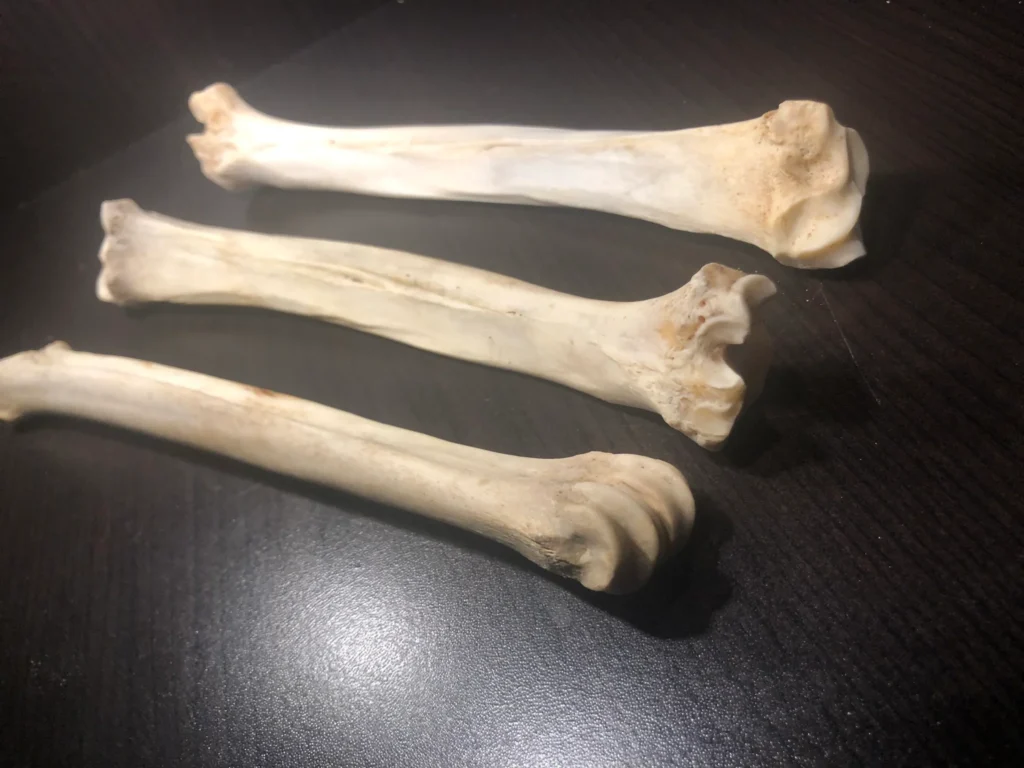- March 14, 2024
Can Dogs Safely Eat Deer Bones?

Are you a dog owner who loves to feed their furry friend some bones? If so, you might be wondering if it’s safe for dogs to consume deer bones. The answer is not as straightforward as you might think, but the short answer is yes, dogs can eat deer bones, but with certain precautions in place. In this article, we will explore the safety of feeding deer bones to dogs and provide some tips on how to do it safely.
Can dogs safely eat deer bones?
Deer bones can be a healthy and natural addition to a dog’s diet, but it is important to take some precautions to ensure your pet’s safety. First of all, it is important to note that cooked bones should never be given to dogs. Cooking bone can make it brittle and prone to splintering, which can cause serious damage to your dog’s digestive system.
Raw deer bones, on the other hand, can be a great way to provide your pet with some important nutrients. Bones are a natural source of calcium, phosphorus, and other minerals that are essential for your dog’s health. Chewing on bones can also help keep your dog’s teeth clean and healthy.

However, it is important to choose the right size of bone for your pet. Bones that are too small can be a choking hazard, while bones that are too large can be difficult for your dog to chew and digest. Always monitor your dog while they are chewing on bones to make sure they are not in danger of swallowing large chunks or getting the bone stuck in their mouth.
It is also important to consider your dog’s individual health and dietary needs before adding bones to their diet. Dogs with certain health conditions, such as dental problems or digestive issues, may not be able to handle bones safely. Additionally, dogs that are prone to obesity may not benefit from the extra calories in bone marrow.
If you do decide to give your dog deer bones, make sure to introduce them gradually and in moderation. Too much bone can cause constipation or diarrhea, so start with a small amount and gradually increase as your dog’s digestive system gets used to it.
In conclusion, deer bones can be a healthy and natural addition to your dog’s diet, as long as you take the necessary precautions to ensure their safety. Choose raw bones that are the right size for your pet, monitor them while they are chewing, and consider their individual health and dietary needs. With these precautions in mind, your dog can enjoy the many benefits of chewing on bones.
Nutritional Benefits
1. Calcium: Deer bones are a natural source of calcium, which is essential for strong bones and teeth in dogs. Calcium also plays a vital role in the functioning of muscles and the nervous system.
2. Phosphorus: Another important mineral found in deer bones is phosphorus. Along with calcium, phosphorus helps in the development and maintenance of strong bones and teeth.
3. Collagen: Deer bones are a source of collagen which promotes joint health and can help reduce joint pain and stiffness in dogs. This is especially beneficial for senior dogs or dogs with joint problems.
4. Protein: Deer bones are a good source of protein for dogs. Protein is essential for building and repairing tissues in the body, and it also helps to maintain healthy skin and a shiny coat.
5. Enzymes: Raw deer bones contain natural enzymes that can aid in digestion and improve gut health in dogs. This can be especially beneficial for dogs with sensitive stomachs or digestive issues.
6. Vitamin D: Deer bones are a natural source of vitamin D, which is important for the absorption of calcium in the body. Vitamin D also helps to support a healthy immune system and can help prevent certain diseases and illnesses.
Possible Risks of Dogs Eating Deer Bones
1. Choking Hazard: Deer bones are much harder than dog bones. When dogs chew on deer bones, they can break into sharp pieces that can lead to choking or blockage of the dog’s airway.
2. Intestinal Blockage: Consuming deer bones can result in digestive problems for dogs. The bone can shatter into small fragments that can get lodged in the dog’s intestines, leading to blockages that can cause potential harm.
3. Damage to Teeth and Mouth: When dogs chew on deer bones, there’s a risk they may crack, splinter or break their teeth. These fragments may further cause mouth injuries, including cuts to their tongue, gums and other soft tissues.
4. Constipation: Deer bones are harder to digest than other dog bones. When dogs consume too many deer bones, they can become constipated, leading to discomfort and difficulty in passing the stool.
5. Bacterial Infections: Deer bones can carry harmful bacteria such as Salmonella or E.coli, which can cause infections in dogs. These infections can lead to vomiting, diarrhea, and other gastrointestinal symptoms.
6. Pancreatitis: Consuming deer bones can lead to inflammation of the pancreas in dogs. This condition, known as pancreatitis, can cause severe pain, fever, vomiting and other symptoms that can be potentially life-threatening for the dog.
Conclusion
In conclusion, while dogs have been known to enjoy chewing on deer bones, it is generally not recommended to feed them to your pup. Deer bones can splinter easily and cause serious health problems if ingested, such as broken teeth, choking, intestinal blockages, and even punctured organs. Additionally, deer bones may carry harmful bacteria or parasites that can be harmful to your dog’s health. To ensure your furry friend’s safety, it’s best to stick to commercially available dog bones or other recommended chew toys.

